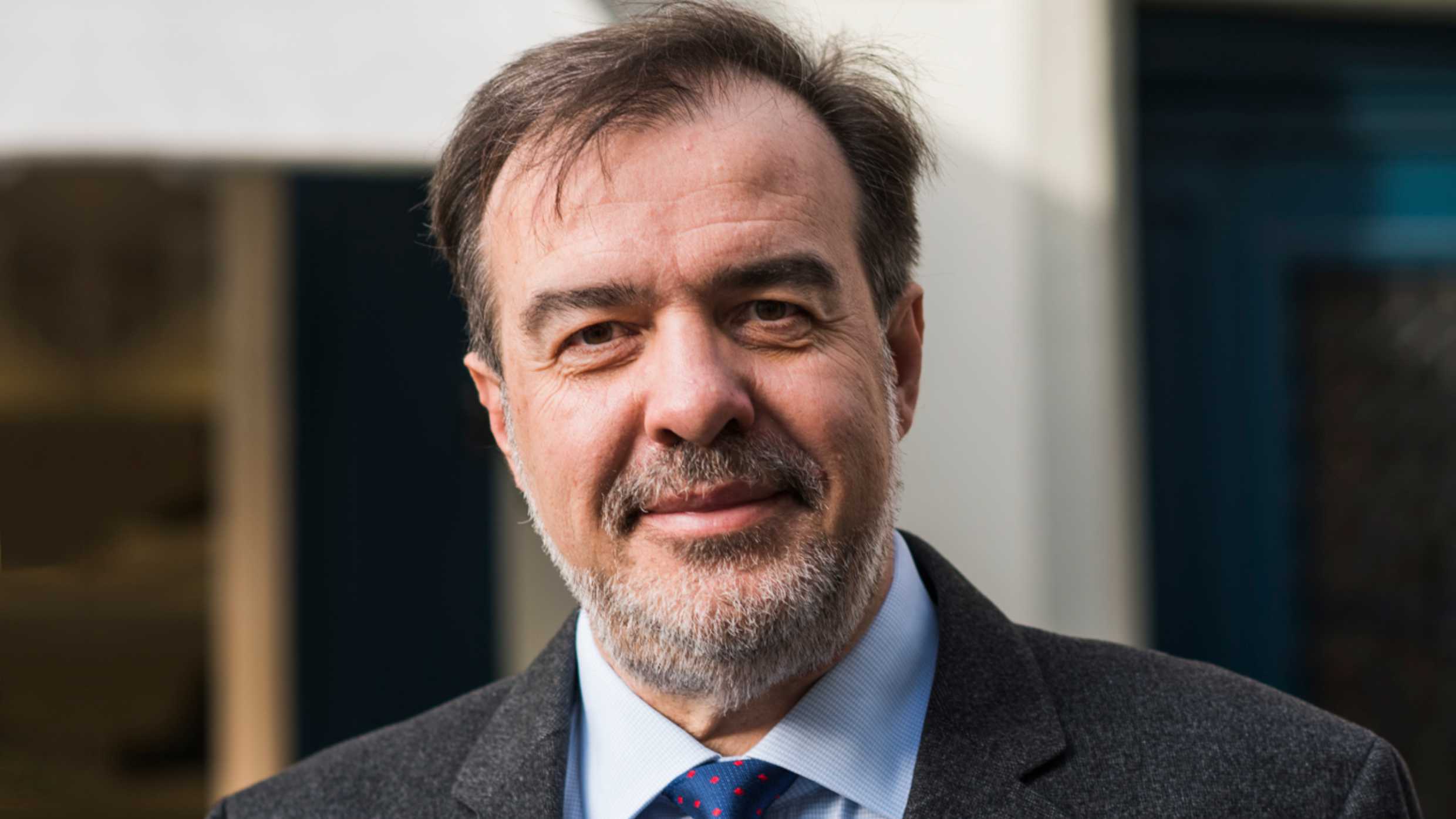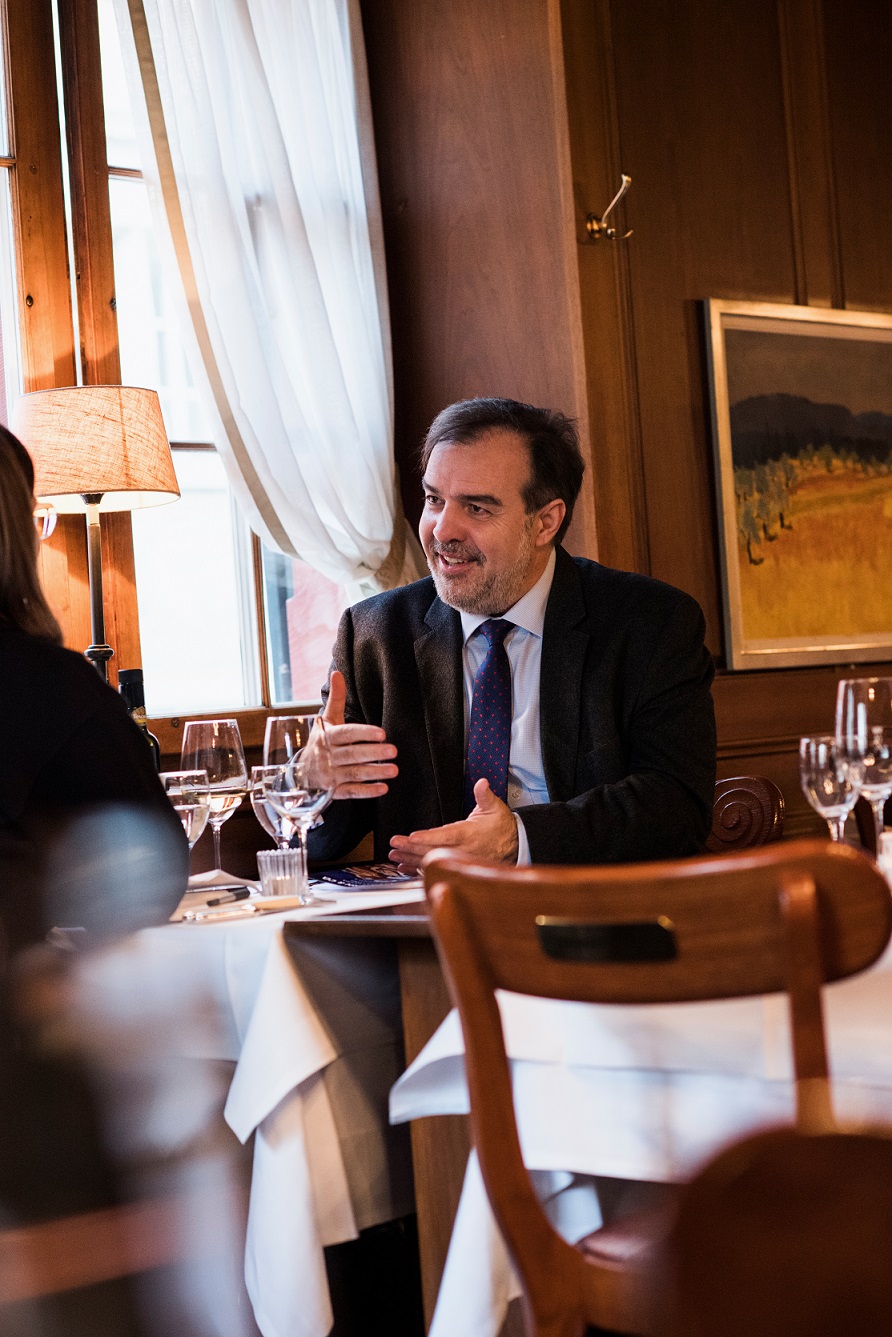Navigation auf uzh.ch
Navigation auf uzh.ch

Walter Farkas, professor of quantitative finance, knew early on that the academic career path was the one for him. As a researcher and lecturer, he strives to combine the best of two worlds: finance and mathematics – the human factor included.
Mathematics was Walter Farkas‘ first love. Growing up in Eastern Europe during the communist era, mathematics was one of the few studies that was not under the influence of the communist party. The desire for independence and the inspiration from a dedicated high school math teacher encouraged him to study mathematics. His passion for this study field seamlessly transitioned to academia. A career in industry was never an option for him. "I wanted to be in a setting where I could think freely and solve problems myself", he says. Although he enjoys challenging joint projects with the financial industry.

Today, Farkas is program director of the joint degree Master of Science in Quantitative Finance, which he helped to establish. The program is based on a collaboration between the Department of Banking and Finance at the University of Zurich and the Department of Mathematics at ETH Zurich. It was one of the first of its kind – and the outcome of a realization the two universities had, thanks also to input by the finance industry. "We realized that UZH graduates were finance experts but lacked knowledge in statistics and programming. Whereas ETH graduates knew how to handle data, but not how a financial market works", Farkas explains. The result of this insight: A new study program and students who are well-versed in both worlds and in high demand on the job market.
"I am very proud of this unique collaboration, made possible by a group of brilliant professors", Farkas says. Last year, the program had around 400 applicants from which only 50 got offers for a study place. "We put a lot of effort into the selection process. February and March are basically blocked because of this", he states. "But the effort is worth it. The students who come are really good." This specialized master program is now very well positioned internationally. The curriculum is constantly evolving to include new topics that are growing in importance. A necessity for a first-class study program, according to Farkas.
Not only in teaching, but also in research, Walter Farkas is very involved. One of his current research projects revolves around sustainable investments. The inspiration came through conversations with Robeco, an international asset management company. "Everyone talks about sustainable investments, but what impact do they have? It is more than just looking at climate changes or climate risks", Farkas says. "The crucial questions are: What good does it do a person or bank to invest sustainably? Are they improving their portfolio, doing something good for society or the environment?" To measure and quantify this impact is one of his main goals. A central insight, the 55-year-old draws from his many years as a researcher: Mathematics alone does not provide enough answers to reality. Decision-making processes must always include the human factor. "I come from a quantitative background, with numbers and measurements, but in the end that is only one view of reality. Reality is much more complex." Especially in risk management, it is important to look at the big picture. Holistic approaches are the way to go. "Not just math, but not just behavior either. Behavior and
emotions need to be complemented by data and findings." When asked what he will be doing in ten years when he retires, he answers with a laugh: "It is part of a dynamic research environment that professors retire and new people with new visions and ideas take over. But I am still full of energy. At the moment, I can‘t imagine that I will stop with teaching and research. There are still many questions I want to answer."
Author: Jamie Brama
Photos: Caroline Krajcir